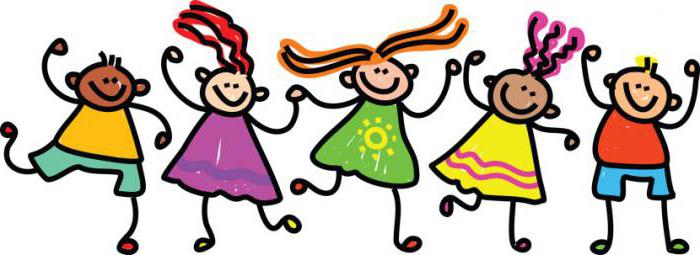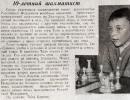II. Double consonants. Double consonants in foreign language words with 2 consonants
§ 58. Double consonants are written when combined with the prefix and root, if the prefix ends, and the root begins the same consonant, for example: on DD to ripen, PRES VERIE, ESTNESS, ON TT YERET, SS, to tann, be ZZ Akonov, Contrad by Euro.
§ 59. Double consonants are written with a combination of compound parts of comprehensive words, if one part ends, and the other begins the same consonant, for example: MO SOP OVET, IG BBRs.
§ 60. Double H and double C are written when the root and suffix is \u200b\u200bcombined, if the root ends, and the suffix begins consonant with H or C:
with suffix -, for example: long (length), antique (older), stone (stone), domain (domain), legal (law), temporary (the basis of time-);
with suffix -sk-, for example: kotlasky (Kotlas), Arzamas (Arzamas), Russian (Rus), but: Tartu (Tartu), Hankowan (Hankou);
with suffix -: Art (cf. skillful).
Double C is also written in the verbs of the past time when a combination of the foundations are based on a return particle, for example: escaped, nec.
Note. Double H is written in numerical eleven.
§ 61. Double H is written in suffixes -Ann, -On-adjectives formed from nouns, for example: straw, painful, cranberry, artificial, internal, burst, peculiar, dining, revolutionary, positional.
Note. In the word windy and in derivatives, one H is written from it, but in submissive formations, it is written - (windless, leveled).
Adjectives with suffix -yan- (-an-), formed from nouns, are written with one n, for example: hair, wood, clay, leather.Adjectives wooden, tin, glasswriting with double n.
With one n written suffix -in- in adjectives, for example: nightingale, chicken, living room, as well as in a noun hotel.
§ 62. Double H is written in the suffering gestances of the past time, for example: reports at the solemn meeting reports; fighter wounded by enemy bullet; collective farm, organized in 1930; reinforced by two numbers detachment; Deputies elected to the Supreme Council.
§ 63. Double H is written in all adjectives formed from the persistent communities of the past time (or by their type), if these adjectives have consoles either end -Own, -Un(except for vigorous and wrought), for example: the patient is assigned enhanced nutrition, it came out of the chosen essays of Pushkin, the sublime style, the inscribed triangle, aged wine, a trusted man, a temperate climate, refined manners, a distracted question, a scattered student, a worn dress, used books, acklain, a rusted key, a risky step, Balked child, corted plot.
But with one n, it is necessary to write adjectives formed from the persistent communities of the past time (including complex, see § 80, paragraph 2), if these adjectives do not have consoles and are not formed from the verbs to be used, : scientists, wounded border guards, torn clothing, smoked sausage, boiled milk, dried fish, greased lime, saline cucumbers, urinary apples, boiled potatoes, smooth cloth.
The words desirable, sacred, desparable, unprecedented, unheard, unexpected And some others defined in vocabulary are written with two n.
§ 64. Double H is written in adversis on -o and in nouns with suffixes to -ik, -in, the disease formed from adjectives, if the latter are written with two N, for example: inadvertently, unheard of, excitedly, excitedness (agitated); confident, confidence (confident); pupil, pupil, pupil (educated); Miller (styled); prisoner (cooked); Birthday (birthday); dentition (hay); Koreannik (root); Property (peculiar).
If the adjective has one H, then the adverbs and nouns are written from it with one n, for example: confused, putanic, confusion (confused); Scientific, learning (scientist); hemp (hemp); Silverman (silver business master). Also with one n write the words of Srebrenik (in the meaning of the coin) and a debris (disinterested person).
§ 65. Double H is written in a case. h. and in female and middle agencies. h. Brief adjectives formed from the suffering communities of the past time, in the full form of which - double N, for example: group of disciplinenn and organized nn s, girl educationnN. a and smart; They are very ramnN.
Brief the same suffering communions are written with one n, for example: Son N, Son N A, Slave N Oh, Slave N s, Youth of Education Komsomol; Girl is frozenn. and upbringing; We restrictn. s time; Students organizedn s group.
§ 66. Double w spells in words loors, yeast, juniper, buzzand in derivatives from them, as well as in some formations from the verb, burn, for example: do you burn, burn, burning, burning, Zhezhka.
If there is an alternation of the ZG - ZZH, ZH - the urges should not write not double, and the urge, for example: torment (trump), cerebellum (brain), come (arrival), later(old. Pozdo, of course, late), zagloming (clogged), And also to break (cf. old. Barzg - "Dawn").
§ 67. Do not write more than two identical consonants in a row, at least it was required by the composition of the word, for example: RA MOP go to go (RA C + MOP go), ARS CES (ADC + Cius), PRA SS (PRA SS + Ski), five hundred (five hundred + n).
§ 68. Writing double consonants in foreign language words is determined in vocabulary, for example: irrigation, corrosion, cassation, excess, essence,but: Poster, literary, official, etching, report.
§ 69. In the words formed from the basics ending on two identical consonants, double consonants before suffixes are saved, for example: group - group, group; program - program software, software; Kilowatt - kilowatts; Calcutta - Calcutt; class - cool; GUNN - GUNNY; score(Unit of measure, evaluation) - five-point, Gall - Gallsky; Libretto - librettist.
In this question, I would start from the end of the explanation. After all, for this there is a general rule for transfer. In this case, to make the transfer in the place where the double consonant rules are spoken. We leave one letter, and transferring another one. And this also applies to the letters listed on the question, and to those names in which these letters are.
So we dealt with the rules. And now we turn to the examples. I felt well and found a lot of examples of such names. And, of course, first of all I will show that I accumulated.
Here is the first picture.
And now.

I cite these pictures in order to show not only as many names in Russian, where such combinations of letters are used, but also in order to be clear how to write them and how such rules appeared.
Well, now we just left to systematize the collected data and add those that are not on the Internet, but which I know.
Let's start with male names.
- Philip.
- Hippolyte.
- Kirill.
- Apollo.
- Immanuel.
- Innocent
And now we turn to female names.
Names with two LL - Alla, Stella, Bella, Apollinaria, Isabella, Camilla, Callist, Nelly, Hellen.
Names with MM - Rimma, Emma,
Names with NN - Anna, Nonna, Zhanna, Suzanne, Inna, Marianna.
Names with double PP - Philip, Agrippina.
As we see women's names with foreign origin much more.
1. Double j. Writing in the roots of words of the entrance, yeast, burning, buzzing, juniper and samplen with them. Wedl: Again (WHO + burn) - you will be awarded (WHO + Zoom), also arked.
Note 1. In the presence of sound alternation zG-ZG., zD-ZZH written not double j., but zZHFor example: squeal (screech), come (arrival). Wed: Torture, torment, rattling, cerebellum, etc.
Note 2. In the words of mesenter, only one thing is written j..
2. Double from The root is written in the words of a quarrel, loan and sample with them.
3. Double consonants are written in comprehensive words, if one part ends, and the other begins the same consonant, for example: chief physician, the Gossector, the post, the hospital.
Note. In the first part of the comprehensive words, which is the foundation that ends with a double consonant, is written only one consonant, for example: Gramplasty, GroupG, Konarmec.
4. In the words formed from the basics ending on two identical consonants, double consonant in front of the suffix persists, for example: score - five-point, Gall - Gallesky, Gunn - Gunds, compromise - compromise, group - group, diagram - chart, program - Program , Telegram - Telegram. The same - in own names, for example: Canberra University, Cannes Film Festival, Lausanne Conference, Bonn Government, Tallinn Monuments of Starny, etc.
Exceptions. In some words, in the case under consideration, one consonant is written, for example: crystal - crystal, Finn - Finnish, column - column, ton - penthoton, Finn - Finca (usually double H is tightened into one n in front of the suffix -K-A.), operetta is an operator; in the names of persons with suffix -to, for example: Alla - Alka, Anna - Anca, Kirill - Kyrilka, Rimma - Rimka, Savva - Savka, Philip - Plipping, Emma - Emka.
5. Double consonants are written at the junction of the console and root if the prefix ends, and the root begins the same consonant, for example: unless - heartlessness, the appeal - the uprising, fake, raise - the story, the art; The same applies to the prefixes of foreign-speaking origin, for example: dissimulation, counter-revolutionary, trans-Siberian.
Note. It should be distinguished by writing words like row (prefix by-) and succumb under-). Wed: The door was filed under blows (stopped remaining in the original position). - The door succumbed to scrap (did not hold back, push).
6. Writing double consonants in words of foreign-speaking origin is determined by spelling dictionary, for example: abbreviation, abscissa, acclimatization, accommodation, letter of credit, accessory, allergies, althery, ammonia, ammonite, appeal, appendicitis, appliqué, appretur, approximation, assessor, assembler, Atoll, Certate, Attikt, Attraction, Babbit, Ballast, Ballery, Balaet, Barrel, Belletrist, Bissektris, Boss, Buffon, Vendetta, Gibbon, Hippo, Gummirabik, Guttapercha, Depressant, Jobber, Dilemma, Distill, Differential, Idyll, Illumination, indifferent, irrational, irrigation, calligraphy, cassation, terminal, college, colossi, coral, corrosion, corruption, coefficient, crystal, mantissa, monsoon, opposition, parallelepiped, parallelogram, Passat, Perron, pessimism, sprieving, summit, setter, settlement, Sillabic, Symmetry, Spaghetti, Shelving, Streptococcus, Tennis, Terrace, Territory, Territory, Trolleybus, Hippie, Chlorophyll, Hobbies, Cellulose, CIR Roses, Cheddar, Chassis, Chinchilla, Excession, Ellipse, Essence.
Note 1. One consonant word Words: unit, aluminum, attribute, bachelor, balustrade, barcarol, broker, venice, volleyball, gallery, landing, dessert, decybel, dealer, amateur, impresario, caricature, Qatar, corridor, Liliput, Level, office, Pilgrim, Polytes, Privilege, Producer, Pudding, Resource, Wolverine, Rusism, Sidewalk, Unison, etc.
Note 2. In Suffix --s-a. Two spells from (poetess, stewardess, clowiness), in the suffix -A-A. Singing one from (Abbatis, actress, director).
In Suffix -etta Two spells t., for example: aryette, operetta, symphony.
In the word, generalissimus is written two from.
Words with double consonants - one of the most difficult from the point of view of spelling. The thing is that these letters are not pronounced as a couple. As a rule, only one sound sounds in their place. Hence the complexity - the inability to notice the orthogram. That is why the spelling of words with double consonants begin to pass from elementary school and finish only in grade 7. Rules regulating this orfigogram quite a lot: they relate to the spelling of various parts of the word. Special attention should be paid to those words where double consonants are on the junction of morpheme.
Fundamentally
The words with the root, as a rule, belong to the category of vocabulary (their writing should be remembered). In Russian, this is a combination lJ and sS.
So, the words "burning", as well as the "entrance" or "yeast" you need to remember - they do not obey any rule. Here you need to be particularly attentive and keep in mind that consonants - zG (D) / - ZJ, With a long pronunciation [F], you should still write [hp]. For instance: venge (named, un. h.) - you are squeal [LJ] and.
As for the combination - sS, it is used in the word "quarrel" and the words that occurred from it ( quarrel). You should also write - sS- fundamentally - ross-: Russia, west Russian, Malororsia.
It should be remembered that - rus- You should write with one - from- if after the suffix is \u200b\u200bnot worth it - sC.-: russed, but Russian. An exception - Belorussia.
Do not forget about numeral. So, in the word "eleven" in the root is written twice n.. The thing is that the lexeme occurred from the phrase eleven (ten).
At the junction of the console and root
Words with double consonants at the junction of the console and root in Russian are quite numerous. Here you should consider several rules.
First, if the first sound of the root is ringing - at the end of the prefix it is necessary to use the letter denoting a ringing sound: site, wait, run.
Here, too, an important role is played by alternation, so, in the word "heartburn" will not be written double j. (Although he heard), because there is a special alternation.

And the opposite principle: the double deaf consonant is used if the root begins with a deaf: b essennica, dispersal, weakening, run. It is important to adhere to the basic principle of the use of double consonants: they can be used exclusively a pair, in no case are not a triple. If it provides for a host of three identical letters nearby - one of them feces.
We will analyze an example: rasurated. This word is formed from the verb quarrel With the help of the console distributed. Accordingly, three should stand in a row from: two from the root quarrel and one from the console distributed. However, according to the well-known principle of spelling, one of them feces.
It should be remembered that in the word "calculation" is written alone from. The same rule is preserved in derivative words, for example: calculable, calculated.
In Suffix
Words with double consonants in the suffix are adjectives and communion. So, words like provocative or cranberry will be written with double n.. It's all about suffixes - enn- and - he N-.
Let us give an example more words with double consonants in the suffix: constitutional, positional, revolutionary. Note that all these adjectives are formed from from from nouns on - tion: constitution, position, revolution.
Two - have three words-exceptions in the suffix: glass, tin, wooden.

In adjectives on - owned / New and derivatives from them (for example, adverbs) are also written double - n- (exception words - forged, chewing): stuffed, Balked, Courted, Excited (Emotional),
As for the communals, the suffix is \u200b\u200bfound in these parts of speech. -Nh. He takes place in the event that we have in the past time. With this rule are often confused, because the data is distinguished from the exclusive adjectives, which are written one letter n..
We will analyze such words with double consonants. Examples such: reading book chitanic whole evening book (participle) - finished book (participle). Another example: wounded soldier (exclusive adjective) - wounded in severe soldier (participle) - wound soldier.
Looking at these examples, it is easy to conclude that the communion with double - In the suffix distinguishes the presence of dependent words either console. These signs may be present both inactively and separately: Wounded in heavy battle soldiers.
On the border of the root and suffix
Words with double consonants can have them at the junction of the root and suffix. This applies primarily by adjectives and formed by them. Teachers argue that in this rule, schoolchildren are confused most often.
For example, we will analyze the word formation chains: fog - foggy - foggy. As we see, the adjective foggy is formed from the noun, the basis of which ends on -N-. From here - double consonant in the Word, which remains in the adverbs formed from the adjective - foggy.

Sleep - Sleepy - Sleepy - It also holds the education of the adjective from the noun with the basis of - With the help of the same suffix ( sleepy). And double n. Present in adverbs.
Another case when double consonant stands at the junction of the root and suffix - the words with the root -sk-. Only in this option will be written. -s-. For example: Odessa - Odessa (Third -from- He was cut on the principle of the impossibility of holding the three identical consonants); Gudermes - Gudermes; Rus - Russian, Kotlas - Kotlas. As we see, the rule concerns all sorts of toponyms.
Word vocabularies
Words with double consonants, as a rule, refer to the discharge of foreign language. It should be remembered that in derivatives from these lexing a double letter remains.

Let us give a few examples:
- group - group;
- compromise - compromise;
- score - tenballe;
- ton - two-ton;
- corrosion - anti-corrosion;
- Mass - massive.
Algorithm for writing and transfer
To correctly write a word with double vowels, it is necessary:
- Determine in which part of the word it is located.
- Find out how to educate this word.
- Check if there is no consonant on the junction of morpheme.
- Determine part of speech (sacrament or ungalled adjective).
- Find out lexical importance. The fact is that there are words, double-consonant in the junction of the root and consoles that depends on the value. These are, for example: fake (copy) - and cleather (The product created by your own hands). In the first case two letters d. at the junction of morpheme, and in the second - the console by-. Another example: rub (run several times) - lumber (be in several places in a short time). In the first word prefix about-, in the second - about-
Word transfer with double consonants is obeying the following rule: one letter remains on the line, the second goes to the following: morning, dedicated, fog, but, be angry.
Scene
In the school year, the theme of the double consonants is introduced gradually: in primary school, the guys introduce the guys with the vocabulary and their derivatives, such as the "group", "gram". Also, younger schoolchildren are assimilating the rules of their transfer.

Further, in high school, when studying morphology, the topic is introduced when studying the spelling of one or another part of speech. In 8-9 grade, the material studied is fixed, its systematization (for example, the topic "H and NN in various parts of speech"), deepening knowledge (analysis of the most difficult cases).
It should be noted that in the tests of GIA and EGE, one of the questions is always devoted to this topic.
Suddenly came unexpectedly, silver streams ran through the rifle tracks. The winged wanderers from distant edges returned, these feathered workers are not tired of the sockets. "
The spring picture passed by this text makes us remember the rules for writing double consonants.
in borrowed words
If writing a double consonant in the Word can not be checked, then they are called double. These words are subject to memorization. As this rule requires, words with double consonants, presented below, we remember.
1. Some Alla, Anna, Vassa, Inessa, Ella, Rimma, Cyril, Savva.
2. Terrace, ton, effect, tennis, repression, program, column, correspondent, Assembly, alley, score, etc.
3. Some original Russian words: Russia, burns, buzzing, yeast, quarrel.
4. In all words that are single-handed with the above.

Word differences with different amounts of consonants
When one consonant in some words, and in other twisted consonants, the rules are:
1. If it differs in terms of the number of consonants, it is most likely different words having a different lexical value:
- ton - measure weight, tone - a pelon form of a word tone - a shade of sound or color;
- cashier - a device for storing money, touch - connection at any point;
- the score is an estimation unit, the ball is the evening of recreation with dancing.
Examples of proposals:
- The ship was already immersed with a ton of coal.
- Never Igor did not hear such a pure tone.
- Today, the box office does not work.
- Touch was weak.
- On the exam, I got a high score.
- Natalia was invited to the ball.
2. There are cases when the number of identical letters does not affect the lexical meaning of words: Alla - Alka, crystal - crystal, art - skillful, correspondent - UNCOR, column - column, Finn - Finnish, tona - penthoton.

Doubted consonants no
If you take, for example, the word "aluminum", then in it one letter "L". Remember these words in which there are no double consonants. Examples of words:
- apartments;
- balustrade;
- gallery;
- humanist, humanistic;
- decibel;
- dealer, dealership;
- amateur, dilettanic;
- drama, dramatic, dramatic;
- imitation, imitate;
- corridor, corridor;
- liliput;
- producer, Producer.
with double consonants
Typically, the words are transferred by syllables: ma-shi-on. Double consonants are:
- Part of the word with one consonant remains on one line, and part of the word with the second consonant is transferred to another: Color-on, tone-on, al-la, Ros-Sia.
- Transferring words with double consonants to exercise whenever possible in a place where there is no double consonant: art, terra-sa, Kres-Pondent.

Unfortunately, even adults are sometimes mistaken, well, or do not know how to transfer such words correctly. For confusion does not happen to you, let's discuss, in what cases the transfer of words with double consonants is unacceptable. Examples:
- alla;
- terrace;
- art.
In addition, the rules for transferring double consonants prohibit transfer words with one vowel sound: class, score, burn.
At the junction of morpheme
When the end of the prefix and the beginning of the root, the end of the root and the beginning of the suffix or suffix is \u200b\u200bthe same letter, doubted consonants appear. Rules dictate such Writing:
- permanent;
- fearless;
- selfless;
- toothless;
- lawless;
- planning;
- crokey;
- story;
- smash;
- tighten;
- dissect
- drain
- be pinched with cold;
- retail;
- set
- pry
- thaw
- outflow;
- knock off
- enter,
- up;
- entrusted;
- art;
- russian;
- sailor;
- novocherkassky;
- painted;
- old;
- true;
- cardboard;
- cupboard;
- windowsill;
- supporter;
- wanderer;
- chosen one;
- pickpocket;
- malinnik;
- osiennik.
Double consonants appear when adding abbreviated bases:
- chief physician;
- maternity hospital.

In adjective suffixes
In Russian, one of the most complex orphograms is one and two letters of H in suffixes, which are found in the words of different parts of speech. Consider spelling - and -n In adjectives. And will help us in this table.
From this rule there are several exceptions: windy (windless), glass, tin, wooden.
It is especially worth mentioning words that are formed without suffix:
- pork;
- mutton;
- young;
- scarlet;
- blue;
- green.
In the suffixes of communion
To properly apply the rule, words with double consonants must be distinguished from adjectives. They are formed from verbs:
- proceed - the state;
- paint - painted;
- write - written;
- expel - expelled;
- desire - welcome;
- buy - bought;
- eradicate - eradicated;
- elect - elected;
- roll - Rassed;
- fry - toasted;
- wake up - awakened;
- delimit - delimited;
- print - printed;
- draw - drawn;
- polling - interferebed;
- grab - captured.
Spelling double consonants. Rule for communities with one letter N. |
|
In short communities | All tasks are made. |
In the communations of an imperfect species without dependent words and consoles | Bench painted. |
Spelling double consonants with two letters N. |
|
There are consoles | Arranged tables. |
There are dependent words | Bench, painted yesterday. |
Words for memorization: unprecedented, neganded, unexpected, desparable, unclean.
In the suffixes of the Nasrechik
In words-adverbs is written as much N.how much in the spelling word. This is the easiest rule. Words with double consonants with this orphogram exist in Russian along with those who are written with one letter:
- sincere - sincerely;
- uneacle - inadvertently;
- beautiful - fine;
- interesting is interesting.

Test
Now, when the topic of "double consonants" was studied, the rules are familiar and understandable, it is possible to check how high the level of learning material is learned.
A. Ball. B. Group. V. Class. Alley. D. Gallery.
A. You need to leave both letters on the line.
B. Both letters must be transferred to the next string.
A. Be sure to check.
B. No, you need to remember.
A. Saturday. B. Telegram. B. Story. Hockey.
5. In what word are LJ writes? Write it _____________________
- bars ... cheating liquid;
- backbreak ... alo iron;
- pro ... harvest through the bridge;
- annoying and ... bog;
- ra ... harvest trap;
- ra..Good Mom;
- you ... feminine land;
- you ... Jeanne horse;
- vi ... Treating baby.
book A (L / LL) Her, television (NN) AA ANTE (H / NN) A, DRA (m / mm) Attic co (l / ll) Izia, friendly co (l / ll), interesting PF (s / s) a, seeding (n / nn) yue ore (p / p), (s / s) go to friends, old DRO (w / lzh) and, show gu (m / mm) anism, krist (l / ЛЛ) B so honesty, submit a (n / Pp) e (l / ll) a nation, alloy A (L / LL) Yuminia, the inventive lawsuit (s / s) is yours, and (k / kk) is urappinated, INTE (L / LL) I am mentally talk, go to opera (T / TT) U, Ma (s / s) Onan lodge, I am fond of BE (L / LL) Etribist, A (P / PP) Nite pie, artistic (N / NN) Aya ha (l / ll) Ering.
Tasks in the format of GIA
- Snow is already on ..thel.
- The shores are charged in the spring.
- The sun be ... a fourthly eating snowsells.
- The rays be ... a fourthly harness yellowed fields.
- Streams and .. dry.
- The travelers of the burs on the road ... holding each other.
- All RA..Tell around the fire.
- It's a pleasure to go with the bottom of the ... hate a bucket by barely prominent trail to the shagha.
- He liked everything here and resulted in delight: how large droplets were worn, breaking down from the leaves of trees, as a peaceful ... Out of the fire and smelly smelled forest land.
- Grandma collected herbs: St. John's wort, the plantain, fern, and always told me about their healing sacrament ... of properties.
- His tanned face was imposed ... about deep wrinkles.
- The owner spoke unusual ... oh gently, talking to pigeons.
- We approach the house and see that the wicket is open: clap from the wind, and the tip of the tongue ... a.
- The next day, the wicket was painted ... And, the loops of her luba ... s.
- In the square at the entrance, the tree ... Aya bench is worth it.
- Near the bench was new pillars of the ins.
- The waves lazily crawled into the sand and medal ... Oholed, leaving behind the edge of a snow-white foam.
- The dog was stood and looked in the distance of the sea, chopper, with low tail.
- Grandmother sat at the table, silent and medal ... oh chewed bread.
- The dog was huge, with a big head and lion ... Laps.
- It was faded, incredibly wide canvas ... scruphers.
- Posters were opening ... s all over the city.
- Everyone left, and only the holy ... whales of Lakeev flashed in the corridors.
- In the center of the room stood a table, covered with ... oh gold tablecloth.
3. Select suggestions in which the numbers are true, on the site of which NN is missing.
- On the table, the fear of (1) about the set of vases with flowers and sketch (2) and a bunch of branches, so the dishes are, as if in the sacrament (3) oh more often. (3)
- At the end of the nineteenth century, the thermometer of the change (1) of the filling was invented. For such a wise (2), the tider was hidden, intended (3) to measure the temperature in a small interval. (13)
- On a hot day, I sat at the tree (1) wow and ate burr (2) OE with the time (3) nuts. (one)
- On the table decompose (1), peach, prepared (2) for a compote, not yet cleaned. (2)
- Glazing (1) The doors were raised (2), and thread (3) Their ringing merged with the ringing of the chandelier. (13)
- At the end of the length (1) of the corridor, there was begging (2) and Camorka, which served guests (3) Ice. (one)

Answers
1. What word is written wrong?
D. Gallery.
2. What is the answer to the question: "How to transfer the word?" Will be faithful?
B. One letter to leave on the line, and to transfer another.
3. Answer: Is it possible to check double consonants?
B. No, you need to remember.
4. In what word is not double, and double consonant?
B. Story.
5. In what word are LJ writes? Write it: scorched.
6. One or two letters are skipped in brackets:
Book Alley, television antenna, dramatic collision, art gallery, friendly team, interesting play, captured area, quarrel with friends, old yeast, manifest, crystal honesty, appeal, aluminum alloy, inventive art, carefully decompose, intelligently talk, go On the operetta, the Massonian bed, fond of fiction, appetizing patty.
Tasks in the format of GIA
1. In which suggestions there are words that are written with double consonants?
- Brooks withered.
- The travelers are on the road, supporting each other.
- Everyone is rushed around the fire.
2. In which suggestions there are words with two letters H?
- Single pleasure to walk with a filled bucket by barely prominent trail to the shagha.
- He liked everything here and resulted in delight: how large droplets were worn, breaking down from the leaves of trees, as a pacorated fire felt and smelled the forest land smelled.
- Grandma collected herbs: St. Justice, plantain, fern, and always told me about their healing mysterious properties.
- The owner spoke unusually gently, talking to pigeons.
- In the square at the input itself, the wooden bench is worth it.
- The waves lazily entered the sand and slept slowly, leaving behind the edge of the snow-white foam.
- The dog stood and looked in the distance of the sea, chopper, with a lowered tail.
- Grandmother sat at the table, silent and slowly chewed bread.
On the third task, the answers are given in the text itself, in brackets.






